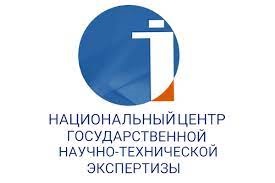Linguistic and Cultural Vocabulary in Social Networks
https://doi.org/10.55491/2411-6076-2025-2-140-152
Abstract
The article explores the promotion of linguocultural values that reflect the interrelation between language and national culture within the realm of social media, which today serves as a primary space for communication and information exchange. The primary objective of this study is to investigate how content that embodies elements of the national cultural code is disseminated and represented across digital platforms. The research focuses on several popular social networking services, including Instagram, Telegram, Facebook, TikTok, and YouTube, which serve as empirical data sources. At the center of the analysis lies the linguocultural specificity of oral folk heritage – proverbs, aphorisms, riddles, and rhetorical expressions – that are actively reproduced in online environments. The study aims to assess the effectiveness of transmitting the nation’s spiritual heritage through social media, its relevance in the digital age, and its role in shaping a national linguistic worldview. The research methodology is grounded in observational and comparative analysis, allowing for a nuanced examination of how nationally significant cultural-linguistic content is utilized in social media contexts. Given the rapid advancement of technology, the accurate and purposeful dissemination of such content significantly shapes users’ perceptions, influences their cultural awareness, and fosters respect for the language, mentality, and heritage of the nation. A systematic analysis of information flow in the digital landscape opens new methodological avenues for scholarly inquiry. Examining the language of social media through the lens of linguocultural studies constitutes a timely and promising research direction. It enables both theoretical insights and practical applications, particularly in relation to the effective use of media platforms, the visual representation of cultural information, and the cultivation of critical digital literacy.
Keywords
About the Authors
A. KassymovaKazakhstan
Assem Kassymova, Doctor of Philosophy (PhD)
Semey
D. Tuzelbayeva
Kazakhstan
Diana Tuzelbayeva, Doctoral student
Almaty
A. Zhumagulova
Kazakhstan
Аliya Zhumagulova, Candidate of Philological Sciences
Semey
References
1. Brutjan, G.A. (1973) Jazyk i kartina mira. NDVSh. Filosofskie nauki. №1. S. 107-114. [Brutyan, G.A. (1973) Language and worldview. NDV. Philosophical sciences. №1. P. 107-114.] (in Russian)
2. Crystal, D. (2011) Internet Linguistics: A Student Guide. London – N. Y.: Routledge Taylor & Francis Group, 191 p. (in English)
3. Dina, D.B. (2002) Qazaq tіlіndegі maqal-matelderdіng tanymdyq-pragmatikalyq aspektіsі. Astana, 135 b. [Dina, D.B. (2002) Cognitive-pragmatic aspect of Proverbs and sayings in the Kazakh language. Astana, 135 p.] (in Kazakh)
4. Goroshko, E.I. (2007) Lingvistika Interneta: formirovanie disciplinarnoj paradigmy. Zhanry i tipy teksta v nauchnom i medijnom diskurse. Orel: Kartush. Vyp. 5. S. 223-237. [Goroshko, E.I. (2007) Internet Linguistics: the formation of a disciplinary paradigm. Genres and types of text in scientific and media discourse. Orel: Kartush. Iss. 5. P. 223-237.] (in Russian)
5. Gumbol`dt, V. (1985) Jazyk i filosofija kul`tury. Moskva: Progress, 450 s. [Gumboldt, V. (1985) Language and cultural philosophy. Moscow: Progress, 450 p.] (in Russian)
6. Heylighen, F. (1992) Selfish Memes and the Evolution of Cooperation. Journal of Ideas. Vol. 2. P. 202-209. (in English) https://www.akorda.kz/kz/memleket-basshysy-kasym-zhomart-tokaevtyn-ulttyk-kuryltaydyn-tortinshi-otyrysynda-soylegen-sozi-14242
7. Kompanceva, L.F. (2008) Internet-lingvistika: kognitivno-pragmaticheskij i lingvo kul`turologicheskij podhody. Lugansk: Znanie, 528 s. [Kompantseva, L.F. (2008) Internet Linguistics: cognitive-pragmatic and linguocultural approaches. Lugansk: Znanie, 528 p.] (in Russian)
8. Lutovinova, O.V. (2009) Lingvo-kul`turologicheskie harakteristiki virtual`nogo diskursa: dis. ... kand. filol. nauk Volgograd, 519 s. [Lutovinova, O.V. (2009) Linguistic and cultural characteristics of virtual discourse: dis. ... Candidate of Philological Sciences. Volgograd, 519 p.] (in Russian)
9. Malikqyzy, M.M. (2023) Aleumettіk zhelіlerdegі soileu qyzmetіnіng pragmatikasy zhane funkcijasy: filosofija doktory ... dis. Almaty, 169 b. [Malikkyzy, M.M. (2023) Pragmatics and function of speech activity in social networks: dis. ... of Doctor of Philosophy. Almaty, 169 p.] (in Kazakh)
10. Mitina, O.S., Petrenko, V.F. (1994) Psihosemanticheskoe issledovanie politicheskogo mentaliteta. Obshhchestvennye nauki i sovremennost`. №6. S. 52-54. [Mitina, O.S., Petrenko, V.F. (1994) A psychosemantic study of political mentality. №6. P. 52-54.] (in Russian)
11. Privalova, I.V., Shaidullina, A.R., Zheltukhina, M.R., Grinberg, T.E., Caselles, C. (2019) Coerced loss of national colorings – linguistic issues of virtual team communication. XLinguae. №1. P. 151-164. (in English)
12. Qaidar, A. (1998) Qazaq tіlіnіng ozektі maselelerі. Almaty: Ana tіlі. [Qaidar, A. (1998) Actual problems of the Kazakh language. Almaty: Ana tіlі.] (in Kazakh)
13. Qurmanbekova, Z.R., Sarekenova, K.K, Malikov, K.T. (2023) Internet-mem zhane olardyng turlerі. ENU Habarshysy. Filologija serijasy. Astana. №1. B. 142-151. [Kurmanbekova, Z.R., Sarekenova, K.K, Malikov, K.T. (2023) Internet memes and their types. ENU Khabarshy. Philology series. Astana. №1. P. 142-151.] (in Kazakh)
14. Sepir, E. (1993) Izbrannye trudy po jazykoznaniju i kul`turologii. Moskva: Progress, 656 s. [Sepir, E. (1993) Selected works on linguistics and cultural studies. Moscow: Progress, 656 p.] (in Russian)
15. Shifman, L. (2013) Memes in a Digital World: Reconciling with a Conceptual Troublemaker. Journal of Computer Mediated Communication. Vol. 18. P. 362-377. (in English)
Review
For citations:
Kassymova A., Tuzelbayeva D., Zhumagulova A. Linguistic and Cultural Vocabulary in Social Networks. Tiltanym. 2025;(2):140-152. (In Kazakh) https://doi.org/10.55491/2411-6076-2025-2-140-152
JATS XML

















